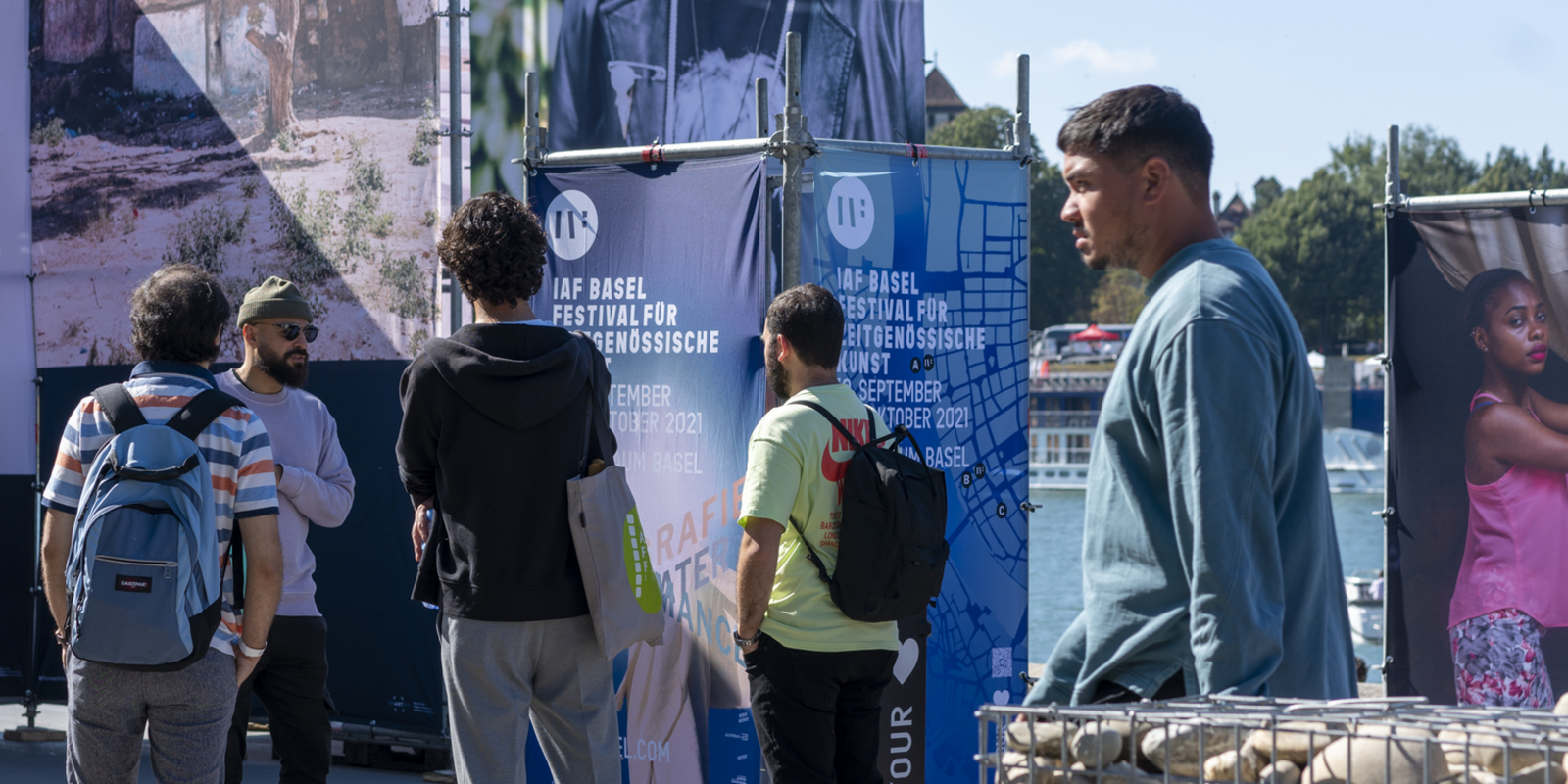Mobility car sharing: Mr Füglister, you are the co-director of the Festival of Contemporary Art in Basel. What sort of things can one experience at IAF Basel?
Benjamin Füglister: Since 2012, IAF Basel has been a multidisciplinary arts festival that presents works of arts focusing on the African continent and its diaspora around the city of Basel. The 2021 programme features photography, theatre and performances. The exhibitions of large-format photographs are held in public spaces. This removes many of the barriers which hinder access to art as well as creating a somewhat casual effect as one walks or lunches by the Rhein. Besides these exhibitions, the guided tours by the artists are especially popular. The visitors are very interested in having direct contact with the people who created the art.
« We seem to prefer to be confirmed in an idea than to question ourselves. »
What is the purpose of this festival?
Through the medium of art, IAF Basel acts as a trigger, whether consciously or unconsciously, for people to think about the African continent and therefore reflect upon their own world view. Our preconceived ideas about the African continent are still largely influenced by the images that we see on TV and in the donation appeals of NGOs day in, day out. Conversely, the diverse and incredibly nuanced images taken by photographers who dedicate a great deal of their time to a project, are often far less visible to a wide audience in Switzerland. The aim of IAF Basel is to help counter this phenomenon. It provides a platform for a wide range of different visual perspectives, which deal with the realities, dreams and imaginations of the continent.
In your view, why does our image of Africa still continue to be romanticised or exoticised?
The fact that this image is considered to be romanticised or exoticised is one thing. Much more important, in my opinion, is the fact that people find it fundamentally difficult to form their own informed view through things which they have not personally experienced. Furthermore, in this case, the centuries of colonial history and decades of one-sided reporting have perpetuated and continue to perpetuate the same stereotypes: poverty, war and famine. We seem to prefer having our ideas confirmed than to question them.

« Stereotypes are not immediately dismantled, but at least they can be questioned and, in the best case, broken down through the images on display. »
Can art really help to break down stereotypes?
Photography is an art form that we are very familiar with in our daily lives, thanks to Instagram and other media. The large-format photographs featured in the exhibitions capitalise on this intimate relationship. This ensures that engagement with art takes place on a familiar, emotional level. Stereotypes are not broken down right away, but, at the very least, the displayed images will cause them to be called into question, and at best, shattered.

What feedback do you receive from African communities regarding IAF Basel?
The feedback varies greatly: it could be anything from surprised to delighted. Just imagine if, you, a European, were living in Malawi for instance, and a group of Malawian creatives displayed art inspired by the European continent as part of an annual arts programme. How would you react? I, for one, would certainly want to participate, so this is how we do it at IAF Basel. Anyone and everyone is welcome to get involved. Our door is always open.
You are using Mobility services for IAF Basel. Why has this proven to be successful?
That’s right, we use Mobility services for transportation when setting up the festival and dismantling everything afterwards. We also use Mobility vehicles to pick up our guests from the airport or railway station. The reason why this has been so successful is that we can leave the Mobility Go vehicles anywhere at any time. This makes planning easy and means that even spontaneous trips, which do tend to happen at a festival, pose no problem at all.


Comments